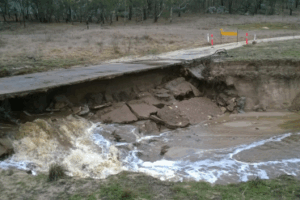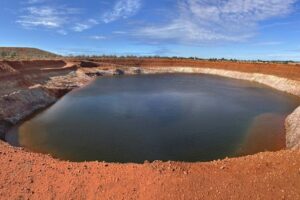
UPDATE: Country Press Australia (CPA) is demanding immediate action to protect regional journalism from the threat of artificial intelligence (AI) companies. This follows the Albanese Government’s recent decision to reject a copyright exemption for AI platforms, a move CPA President Damian Morgan says is just the first step in a critical battle for the future of local news.
Morgan highlights that the damage to regional journalism is not a distant concern; it is unfolding now. “AI companies think they are above the law,” he stated, emphasizing that these firms are extracting local news stories, paraphrasing them, and presenting them as answers rather than directing users back to the original publishers. The implications are severe: the public consumes journalism without ever supporting the creators, leading to a devastating loss of revenue for local publishers.
In a stark warning, Morgan explained that while regional publishers attempt to fund journalism through metered paywalls, AI scraping often circumvents these protections, putting jobs at risk. “These platforms are now replacing the publisher in real time,” he noted. This disruption threatens the economic foundation necessary to sustain regional journalists in Australia.
Morgan also drew attention to a previous policy failure, where Meta withdrew its funding for news, leaving Australian journalism vulnerable. He stated, “We cannot allow a second cycle where big tech benefits from regional reporting without contributing to its funding.” He called for AI companies to license and pay for Australian news content, asserting that a comprehensive national framework is essential. This framework should explicitly include regional publishers alongside larger media organizations.
The CPA is advocating for a licensing system that covers both AI training data and output. They also demand a swift enforcement pathway for small publishers who cannot afford protracted legal battles. “Regional journalism is public infrastructure in democratic life,” Morgan declared, warning that unchecked AI scraping could lead to the disappearance of local reporting. “Once a regional newsroom closes, there is no replacing it,” he added.
The government’s rejection of a copyright carve-out for AI is a positive initial step, but the next phase—focused on licensing and enforcement—will be crucial for the survival of regional publishing. “Australia solved this problem once through the News Media Bargaining Code. We now need the AI equivalent before the harm becomes irreversible,” Morgan concluded.
As the situation develops, the CPA urges citizens and stakeholders to recognize the importance of supporting regional journalism, emphasizing that its loss would not only impact local communities but also the democratic process itself. The call to action is clear: immediate engagement and robust policies are needed to protect the integrity of journalism in an increasingly AI-driven world.





